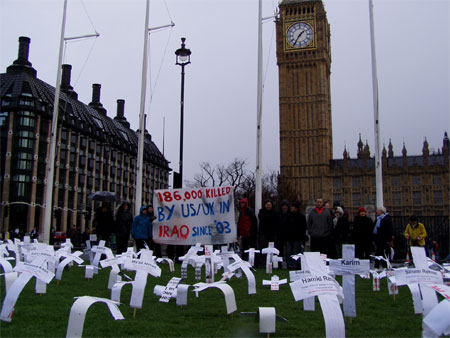I wish all my Muslim friends and readers God's blessings on Eid al-Adha (The Festival of Sacrifice)!
It's an important festival which I think Christians should also celebrate. It remembers the day that Abraham did not sacrifice his son (Issac or Ishmael, depending on you preference). The focus is often on the obedience and faith of Abraham in his willingness to give to God that which he cared about the most. This is certainly an important part of the story, but I think another perspective on it is even more significant. People often wonder why God should ask Abraham to prepare to do such a horrible thing (building the altar, tying his son to it, raising his dagger to kill...) even if he granted a last minute reprieve? I think this question reveals the great truth behind of Eid al-Adha. Abraham lived in a time when human sacrifice, including child sacrifice, was central to most of the religions of the day. God was giving Abraham a very clear lesson: He was not that kind of deity. He is the God who creates, and life is precious to him.
How ironic then, that in a day that we remember a life being spared, in Iraq a life was taken. I was no fan of Saddam. I know many people who suffered directly and indirectly because of his harsh rule and, but for his regime (and the reaction of other countries to it), Iraq might today be a wealthy and peaceful country, the cradle of civilization. However executing him does not undo the damage. In fact in the long term it may inhibit the healing process for Iraqis, who will now not have the chance to have the wrongs done to them because of Saddam heard in court. Saddam is of course not the first person to be executed. There are of course many serious crimes such as murder and kidnapping being committed daily in Iraq, and the Iraqi courts are handing out the death penalty frequently and often on a tiny fraction of the evidence and judicial process that existed for Saddam. I have lost many friends in Iraq in recent years, and I can relate to the desire for punishment and revenge. But sadly I doubt this will set the foundation for the peaceful Iraq, respectful of human rights, that the long-suffering Iraqis deserve.
I would have preferred the punishment for Saddam that Norman Kember has suggested: for him to be dressed in an orange jumpsuit and put to work on a building site, ending his life repairing in a small way a tiny part of the destruction he brought upon his country. And we could think of a few other leaders closer to home who might justly be expected to join him in laying those bricks.
